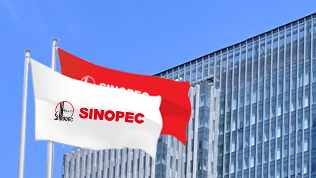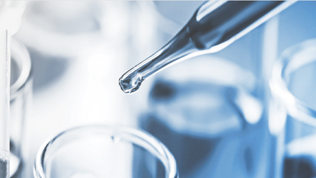Sinopec has implemented Xi Jinping's Thought on Ecological Civilization; practiced the philosophy about green development; popularized clean production in all aspects; advanced the "Green Enterprise Action Plan"; and facilitated the implementation of the strategy about green and clean development.
"Green Enterprise Action Plan"
Sinopec has also pushed forward the "Green Enterprise Action Plan"; built a system for green enterprise and green primary-level organization assessment and applied it to all business segments, achieving remarkable results in the supply of clean energies, utilization of resources and energies, as well as the reduction of pollutants and greenhouse gas emissions. In 2021, 32 subordinate enterprises were rated as "Sinopec Green Enterprises of the Year"; and all have passed the review. To date, Sinopec has seen 104 enterprises turn into green enterprises; and over 14,500 primary-level organizations become green primary-level organizations.
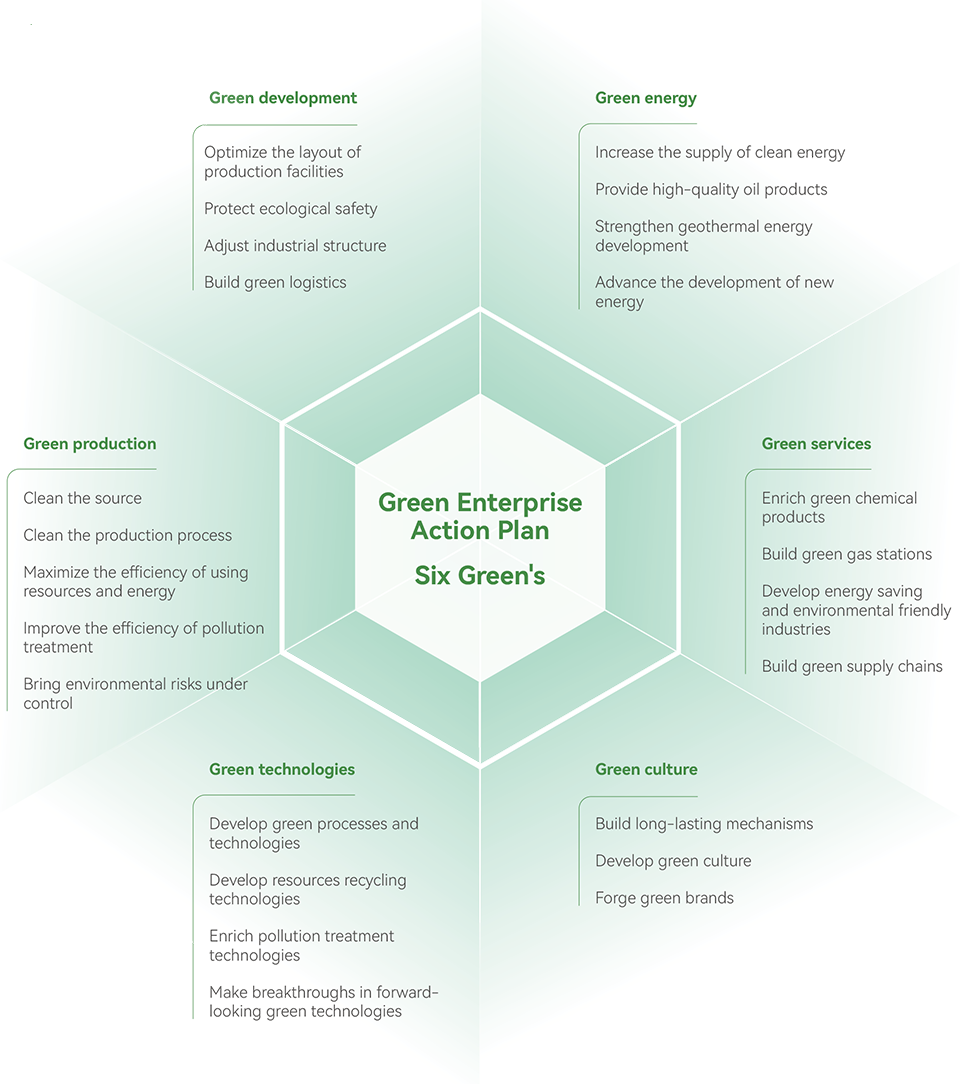
Clean production
Popularizing green production in all aspects, Sinopec has stepped up efforts to scale up green technologies and environmental protection processes; reduced the discharge of waste gas, waste water and waste residue and the emission of pollutants generated in consumption, so as to ease the environmental impact of operations throughout the process from the purchase of raw materials to consumption. By 2021, 12 enterprises under Sinopec were honored as State-level green factories; 4 enterprises as State-level green mines; 11 enterprises industrylevel green factories, and 10 products of 7 enterprises as State or industry-level products with green designs.
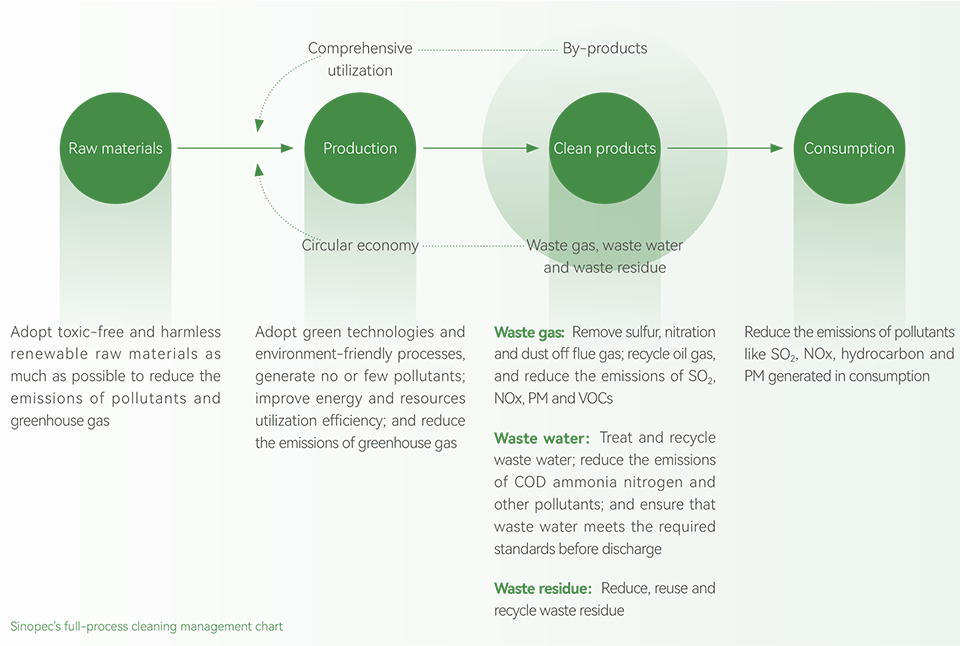
Reduction of waste discharge and pollution
Sinopec has prevented and treated pollution according to the standards higher than state and local ones. It has beefed up management and control; improved environmental protection facilities; reduced the discharge of waste gas, waste water and waste residue; prevented soil and underground water pollution; and treated production noise and smell by integrating the requirements for ecological protection into every part of its operations.
Management of air pollutant discharge
By following State and local policies, regulations and standards on air pollution prevention and control, Sinopec has worked to cut air pollution and reduce the discharge of air pollutants by optimizing its energy structure and adopting clean fuel and raw (auxiliary) materials; clean production processes and advanced treatment technologies. Sinopec has implemented the initiatives of the State, such as pollution prevention and treatment, winning the battle to keep our skies blue, and fighting air pollution in the autumn and winter in an all-round way. It kick-started its emergency plan for heavily polluted air; and has adjusted production and pollution prevention and treatment facilities to ensure the realization of air pollution prevention and waste emission reduction goals. Sinopec has continued to implement the Special Action Plan for Ozone Pollution Prevention and Treatment; released the Sinopec Environmental Protection Improvement Plan 2021-2023; adopted the standards for NOx and VOCs emission concentration which are tougher than State and local ones; and pushed forward waste emission reduction projects. In 2021, the comprehensive compliance rate for waste gas was 99.9% across Sinopec, with sulfur dioxide and oxynitride emissions down by over 4% year on year.
Management of water resources
Sinopec has kept optimizing the structure of water consumption; strengthened water conservation at the source; and carried out water balance tests and pipeline leakage treatment, to reduce industrial water intake; advance the replacement of fresh water with non-conventional water resources; and cut down the use of fresh water. In 2021, the group company saved 10 million m3 of water, down 1.1% year on year. In the appraisal for "leaders" in water use efficiency organized by China Petroleum and Chemical Industry Federation, Qingdao Refining & Chemical; Zhenhai Refining & Chemical and Tianjin Petrochemical were honored as "leaders" in water use efficiency in the crude oil processing industry. Maoming Petrochemical and Zhenhai Refining & Chemical were granted the title of "leaders" in water use efficiency in the ethylene industry; and ZTHC was honored a "leader" in water use efficiency in the CTO industry.
Sinopec follows the policies, regulations and standards on waste water pollution prevention and treatment at the State and local levels; has intensified the management of water pollution prevention and treatment facilities; and controls the risks to all kinds of water bodies. Greater efforts are being made to reduce the emissions of waste water at the source. Also, refineries have improved the separation between rainwater and waste water; worked for the visualization of a waste water pipeline; and developed the information modules for a waste water and rainwater pipeline to increase the recycling of waste water and reduce the generation of waste water. Online environmental monitoring facilities have been installed as required by the government, to ensure the real-time monitoring of water pollutant discharge; pre-warning and warning measures were adopted; and the operation of production devices and the management of environmental facilities were adjusted to ensure the discharge of waste that meets required standards. In 2021, Sinope ensured that 100% of waste water met required standards before being discharged externally; with COD and ammonia nitrogen discharge down by over 2% year on year
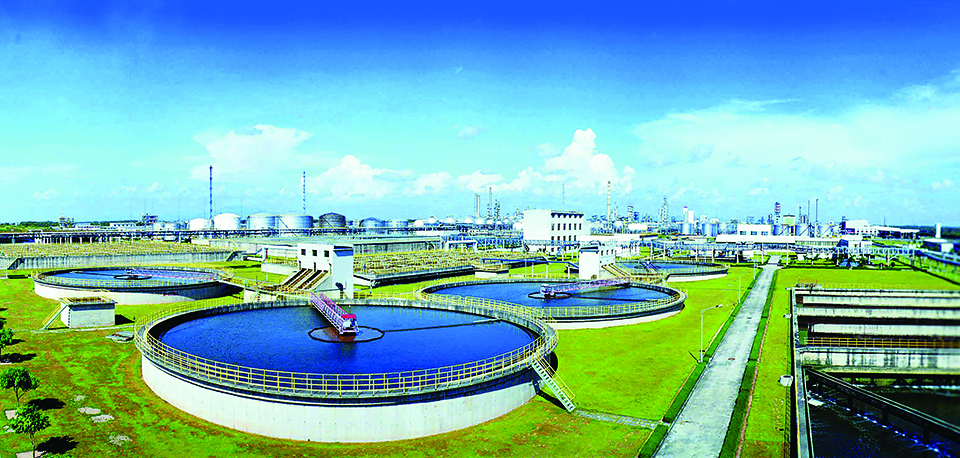
Ethylene wastewater treatment facilities at Sinopec Maoming Petrochemical
Management of solid waste
While implementing the requirements of the new Solid Waste Law, Sinopec follows the principle of reducing, reusing and recycling solid waste and minimize landfill; and advances the comprehensive management and utilization of solid waste. It revised Sinopec's List of Dangerous Waste and minimize landfill; issued the Guide for General Industrial Solid Waste and Garbage Environmental Protection Management (For Trial Implementation); and took actions like the three-year special treatment of dangerous waste; and the treatment of solid waste in keeping with laws and regulations and the elimination and treatment of environmental hazards posed by solid waste in the Yangtze River and Yellow River basins by guiding subordinate enterprises to strengthen management. Also, it pushed for the building of two regional centers for the treatment of dangerous waste; formulated the work plan for the pilot projects of building Sinopec into a waste-free group; and cooperated with the Ministry of Ecology and Environment on the building of a typical demonstration group enterprise. In 2021, the compliant disposal rate of solid waste was 100%.
Prevention against soil pollution
Sinopec has also exercised pipeline integrity management; and organized enterprises to conduct research on crude oil pipeline corrosion and repair. Besides, it has inserted new pipes into older ones or replaced old pipes with new ones; teamed up with local governments and cracked down on oil stealing; and intensified oil transmission equipment maintenance, inspection and renovation, so as to make the equipment safer, more environmentfriendly and reliable. Separately, it has strengthened environmental risk management to ensure no discharge of materials or sewage from accidental leakage into the external environment. In 2021, the group company saw no environmental events resulted from oil leakage.
Prevention of underground water pollution
In combination with the preliminary investigations on corporate land use, Sinopec has continued to monitor soil and underground water to implement a system for troubleshooting soil pollution hazards and the requirements for enterprises to conduct monitoring on their own. Sinopec has kept improving the system for the prevention and control of soil and underground water pollution; established a daily monitoring mechanism and has also organized the troubleshooting of soil pollution hazards in places where solid waste is generated (production facilities within 1 km of the Yangtze River system and 10km of the Yellow River system).
Noise treatment
Following the requirements of the new Noise Law, Sinopec has continued to advance the prevention and treatment of noise pollution throughout production and operations. By optimizing the layout of production facilities; prioritizing the use of low-noise processes and equipment; building noise-barrier facilities; monitoring noise and publicizing such information and strengthening the R&D of noise pollution prevention and treatment technologies and talent training, Sinopec has worked to control noise pollution and created a quiet and harmonious living environment.
Circular economy
With a focus on the development of a circular economy, Sinopec has continued to reuse solid waste; and encourage enterprises to take measures to recycle waste gas, so as to increase the efficiency of the comprehensive utilization of resources.
Sinopec Northwest Oilfield is replacing concrete with a steel and wood foundation when building well sites, and achieved recycling. In 2021, the model was applied to 52 well sites on a cumulative basis and about 10,963 m3 of concrete was replaced, reducing the construction waste generated at the source and yielding about RMB6.6 million of economic benefits.
Sinopec Beijing Oil has covered all the gas stations in operation with primary and secondary oil gas recovery units; installed over 260 tertiary oil gas after-treatment devices to recover the oil vapor escaping from gas stations; transmits it into the saturated oil gas in the underground oil tanks and reduces the loss from the evaporation of oil inside tanks. The oil gas in vehicles can be converted into petroleum available for use through secondary oil gas recycling, thus reducing the loss of gas fuel. If the daily refueling volume is 20 tonnes and the gas-to-liquid ratio is 1.1, about 28,000 L of oil gas can be recovered each day.





 Address
Address Post code
Post code Tel
Tel 京公网安备11010502035639
京公网安备11010502035639 
